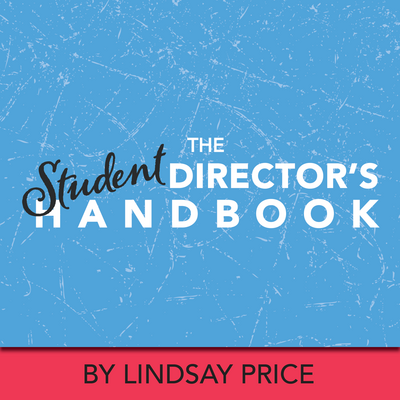Five Tips for Dealing with Scheduling Policies & Conflicts, For Directors
Recently we shared a post about theatrical time management for students . However, it’s not just students who need to plan ahead and consider their schedules. Teachers and directors need to be even more organized, since they have to consider not only their schedule, but everyone in the cast and crew’s schedules! With some smart planning and clear communication, directors can keep their rehearsal and production schedule running smoothly. Here are five tips to help directors reduce scheduling issues during the rehearsal process.
1. Be upfront about your rehearsal schedule and performance dates, as well as your expectations and any rules for missing rehearsal. Let students know these dates during auditions or beforehand (if possible). It will hopefully save people from disappointment, if they’re cast and then have to drop out because of conflicts.
Also, be very clear about your expectations regarding attendance and lateness. Do you have a three-strike policy? Who do students contact if they have to miss a rehearsal? When rehearsals are missed, how do students get caught up? Are technicians and crew members expected to attend all rehearsals?
It should go without saying, but it is unacceptable for a student to miss a technical or dress rehearsal, or any performance dates. The only way a student could continue to participate is if there is a predetermined solution that has been approved by the director (for example: a substitute technician or available understudy).
2. Ask for conflicts from your cast and crew in advance. Get this information in writing so you can refer back to it later. Let everyone know when the cut-off date for conflicts is. After that date, no more conflicts will be allowed. This will cut down on the number of instances a student comes up to you at the end of rehearsal and says, “I won’t be here at next rehearsal. I have ________ conflict.”
A technique I’ve found very useful is to take a calendar template, highlight the rehearsal dates, and mark down the names of anyone who has a previous commitment in blue pen. If someone is absent without letting us know in advance, their name goes on the calendar in red pen. If they are late, I use another colour. It’s a really simple yet effective way of keeping a visual record of attendance.
3. Make a rehearsal schedule in advance and let students know about it with plenty of time. Don’t waste students’ time by calling them to a rehearsal they’re not needed to attend. They’ll just sit there, possibly distracting the other students, and feel resentful that they’re not doing anything. Try to give at least two weeks of rehearsal schedules at a time, so students can plan ahead.
Sometimes calling all students to rehearsal is necessary (even if they aren’t in every scene being rehearsed), so encourage them to bring along a book or some homework to keep them occupied and quiet during downtime. Or, even better, they could be using the time to work on learning their lines.
4. Respect everyone’s time. Don’t keep students for hours after the scheduled rehearsal time to cram in those last few notes or to run that scene “one more time.” We all know in theatre that it’s never just “one more time!” Students are so busy with homework, part-time jobs, other extracurricular activities, and are frequently at the mercy of parents and family members for rides. Get a big clock and set it up where you can see it, and end rehearsal right on time (or better yet, five minutes early, so everyone can help tidy the rehearsal space before they leave!).
5. Give clear and specific timelines to everyone involved in the show —actors, crew members, designers, technicians, etc. Let them know when you expect off-book day to be. Let your costume and props team know when you’d like to have a costume parade and when you want to start working with props. Work with your producer to find out what dates you want certain marketing to occur on. The more organized you are with your timeline, the better your show process will run.
The Student Director's Handbook
by Lindsay Price
Help students take their show from first audition to opening night with The Student Director’s Handbook. This easy-to-use ebook is full of guidelines, tips and templates designed to help students create a vision, circumvent problems and organize rehearsals on their way to a successful production.
The Rehearsal Companion
by Kerry Hishon
You’ve chosen the play, paid the royalties, done the script analysis, held your auditions, and cast the show. Tomorrow is the first rehearsal. Are you ready? Really ready? The Rehearsal Companion can help!





